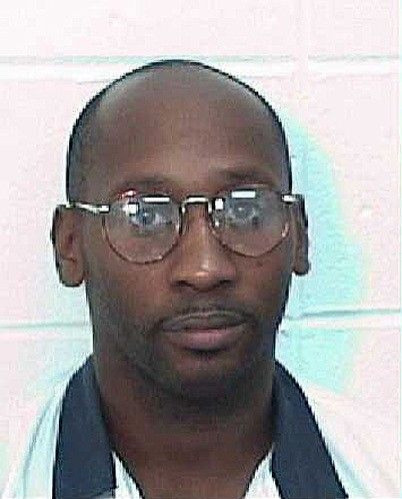Georgia Set to Kill Troy Davis Wednesday

Convicted cop killer Troy Davis is set to be killed in Georgia Wednesday. Davis was denied clemency Tuesday morning by the Georgia Board of Pardons and Paroles, the only authority in the state with the power to commute a death sentence.
The board has considered the totality of the information presented in this case, and thoroughly deliberated on it, said board spokesman Steve Hayes in a terse statement. After which the decision was to deny clemency.
Soon after the parole board announced its decision, the Rev. Marvin Morgan, went to the board offices in downtown Atlanta and chained himself to a flagpole in protest of the set execution before police cut him free and arrested him.
If the state of Georgia can intentionally kill a person in a case surrounded with this much doubt, then we're all subject to the same fate, Morgan told a reporter from the Los Angeles Times.
The 42-year-old Davis has long professed he's innocent of killing off-duty police officer Mark MacPhail in 1989 in Savannah, and his looming execution has gained international attention since no physical evidence was presented against him during trial. Multiple witnesses have recanted or changed their stories in the years after the murder.
The pardons board has the power to commute death sentences, however, the board rarely does so. The board has commuted three death penalty cases since 2000 and said it thoroughly deliberated Davis' case.
High-profile supporters of Davis have included former U.S. president Jimmy Carter. Protests have been held throughout Georgia and elsewhere, including New York, Washington, Los Angeles and around the globe.
Jonathan Perri, a senior organizer on criminal justice for Change.org, which helped organize a campaign to save Davis, said the case is unique for the broad support it has generated.
People from all different religious denominations and both sides of the political spectrum have come out in support of Davis, Perri told The Washington Post. Because there is a tremendous amount of uncertainty surrounding this case.
Davis is scheduled to die by injection on Wednesday at 7 p.m. CDT, the fourth time in four years his execution has been scheduled. The U.S. Supreme Court could step in with a stay but observers don't think that will happen.
Davis was convicted at a 1991 trial on the basis of nine witnesses who all said they saw him shoot the police officer. But in the years since the trial, many witnesses have said they were pressured by investigating police officers to implicate Davis.
The pardons board spent several hours on Monday listening to testimony from supporters of Davis, including family and friends. Prosecutors and the slain officer's family also attended, arguing that the execution should occur as scheduled.
After the closed door hearing, MacPhail's family said they asked the board to reject Davis' clemency attempt so they can finally have peace.
A future was taken from me. A future we would have had together, the future he would have had with his family, said a tearful Madison MacPhail, who was a toddler when her father was killed, according to CBS News. I believe the death penalty is the correct source of justice.
But Davis' sister said there's too much evidence that suggests her brother didn't commit the crime, and that once the execution takes place there's no going back.
© Copyright IBTimes 2024. All rights reserved.



















